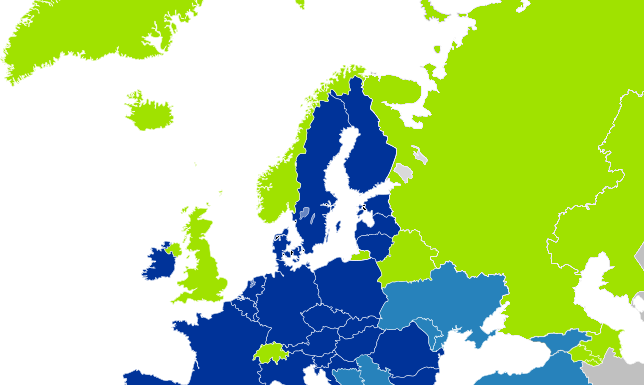By Mekki Elmograbi, a Sudanese journalist, commentator on international affairs, and former consultant at the Sudanese Embassy in Washington, D.C.
Russia’s invasion of Ukraine has changed Kiev’s foreign policy outlook. Kiev is geopolitically closer today to Washington and London than it has ever been. The same is true with its ties to other regions. Kiev has for example developed new and improved ties with countries in the Middle East. Some of those countries also maintain a robust relationship with Russia. Yet, in the long-term, the trends, as we shall see, favor Ukraine.
This month, Ukrainian President Vladimir Zelensky (picture) took the unusual step of doing an interview with the prominent Saudi media outlet “Arab News” in a televised portion for the show “Frankly News”. During his talk, Zelensky went out of his way to praise Saudi Arabian Crown Prince Muhammad Bin Salman’s role in a recent prisoner swap. Negotiations involving Ukrainian intelligence services and Saudi Arabian officials resulted in some 300 prisoners of war being freed.
That number included ten international members of Ukraine’s so-called “Foreign Legion” from countries as far afield as Morocco, Croatia, Sweden, and the United Kingdom. It also included two Americans.
“Given the ties that the crown prince has with Russia, probably it was, you know, a good chance of success, and I’m very much thankful to him for this brilliant result,” Zelensky reacted. Zelensky went on to insist he was open to similar proposals in the future.
Ukraine war: Crown prince crucial in Ukraine prisoner deal, Saudis say https://t.co/If8Iyjcoub
— Nahid Alaei (@NahidAlaei) September 23, 2022
MBS, as the Saudi Crown Prince is known, is not often the toast of European capitals, but he was in Ukraine after playing a role (along with Turkey) in the prisoner swap. By congratulating MBS on his mediation efforts, Zelensky is also signaling that he is open to Saudi investment in post-war Ukraine as well as that of other Middle Eastern countries, who are increasingly playing a larger role in the conflict.
Also the President of the United Arab Emirates, Sheikh Mohamed bin Zayed, will travel to Russia this month in an apparent bid at diplomacy aimed at ending the conflict. There is no guarantee it will be as successful as Saudi Arabia’s mission, but, it does speak to a growing interest in the conflict in the Arab world.
Sure, the Gulf States and Russia have a special relationship due to oil – but that is all that relationship is based on. What Zelenensky is pushing for is a larger and deeper relationship with Saudi Arabia and other countries.
For his part, President Zelensky would much prefer that countries in the Middle East have it both ways, rather than openly side against, as Iran has decided to do. In the aforementioned interview, Zelensky lashed out at Iran for providing drones to Russia that have been used to target civilian infrastructure.
“We have a number of these downed Iranian drones, and these have been sold to Russia to kill our people, and they are — you’re right — they are being used against civilian infrastructure and civilians, peaceful civilians. Because of that, we sent Iranian diplomats away from the country. We have nothing to talk with them about,” he said.
Zelensky: “We are dealing with terrorists. Dozens of rockets, Iranian suicide drones. They have two aims. Energy infrastructure across the whole country…. The other aim is people. They have chosen the time and targets to harm as many as possible.” pic.twitter.com/E5GCnjnITb
— Oliver Carroll (@olliecarroll) October 10, 2022
After the war
Ukraine’s post-war economy is a product of food staples and other resources that Saudi Arabia could well draw on as it seeks to diversify its suppliers of food. Saudi Arabia imported roughly 33 million euros worth of foodstuffs — dairy products, eggs, honey, and other edible products from pre-war Ukraine.
“We would really love to see Arab businesses and (for) Arab countries to be present, working in our country. We are ready to offer wonderful terms and conditions for businesses, fiscal, and so on. And there is also one ambitious aim for every country willing to come to Ukraine with an idea of recovery,” Zelensky said, forecasting a day when peace would return to Eastern Europe.
Deep roots
A new relationship between the Middle East and Ukraine has deeper roots than one might expect. For example, during the Cold War, Saudi Arabia found itself against Moscow in-directly on battlefields from Africa to Afghanistan.
In many ways, Ukraine may be re-establishing links it once had with the Middle East.
The Ukrainian city of Odessa was seen early in the conflict as Putin’s key objective. If the Russian army would seize it, it would cut Ukraine’s access from the sea, turning Ukraine into an effective land-locked vassal of Russia.
With Putin’s forces on the strategic withdrawal, that objective seems farther than ever. Odessa, we should remind ourselves, was once not only a strategic port but one linked to the Mediterranean and the Middle East. In the 19th century, the city was home to Ukrainians, Russian, Turks, Jews, Tatars, Greeks, Syrians, Persians, Armenians, Italians, Germans, and French migrants.
Such was its cosmopolitan nature that Père Goriot, the title character of an 1835 Balzac novel, longs to visit its exotic streets.
That history might be forgotten and that cosmopolitan past long gone. But, if Ukraine can remind the Arab world of this history. It might find itself with some unexpected allies in the Middle East.
Disclaimer: www.BrusselsReport.eu will under no circumstance be held legally responsible or liable for the content of any article appearing on the website, as only the author of an article is legally responsible for that, also in accordance with the terms of use.













